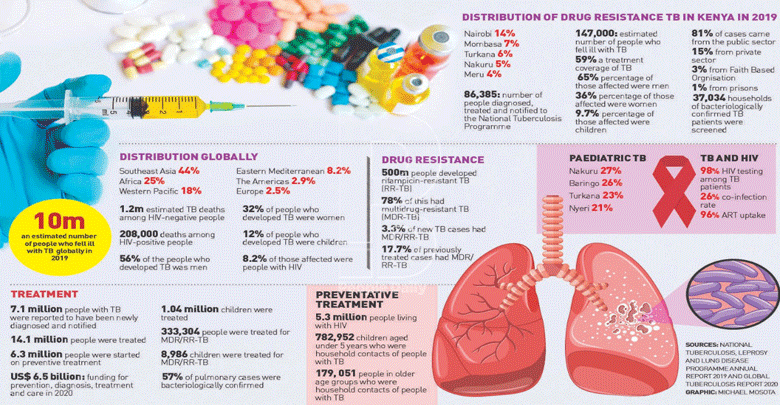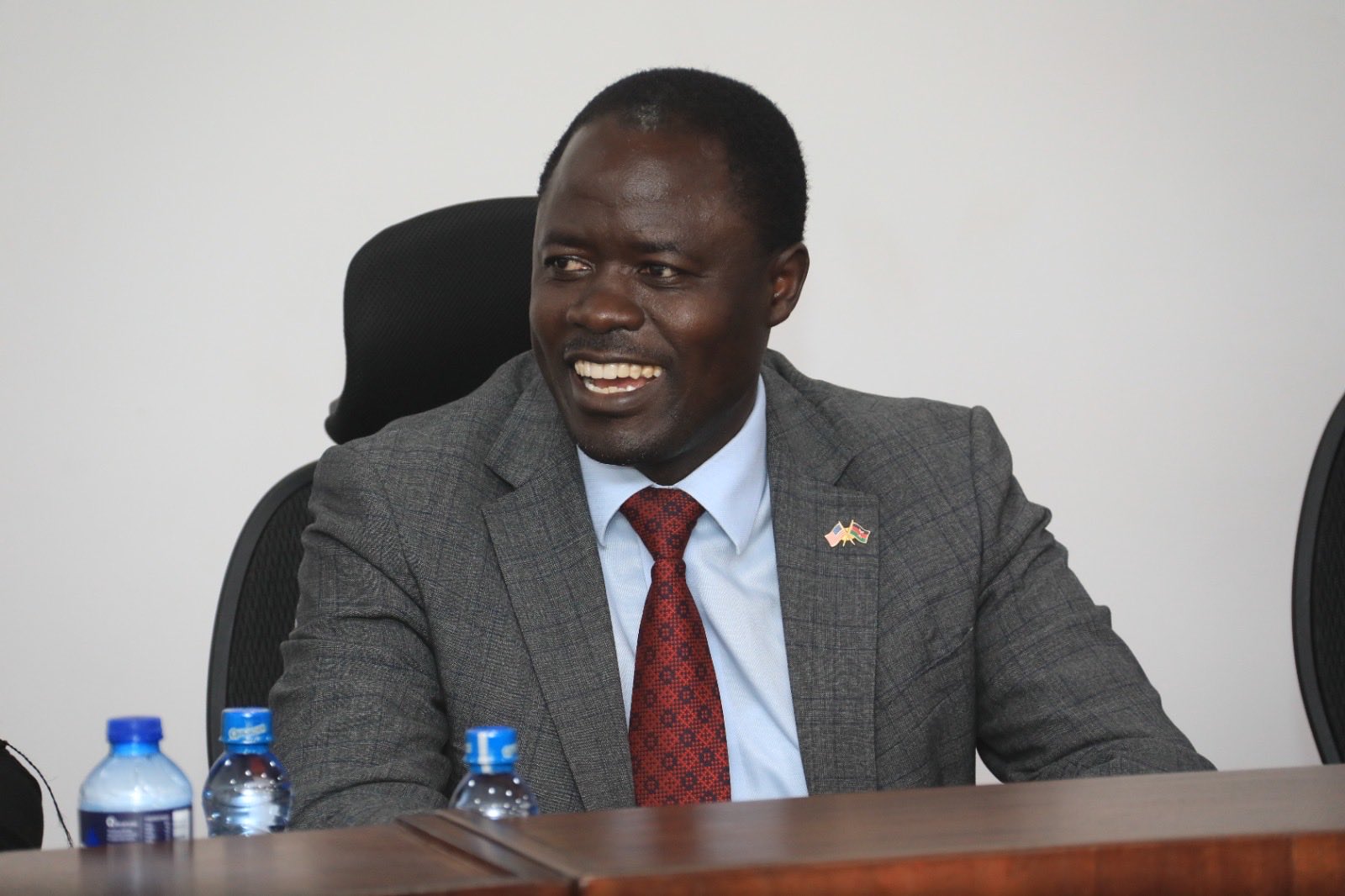Virus rolls back gains made in TB fight

The Covid-19 response has pushed aside tuberculosis (TB) outreach and services, resulting in a 20 per cent drop in diagnosis and treatment worldwide, new data shows.
Nine of the countries with the most cases – representing 60 per cent of the global disease burden – saw a drastic decline in diagnosis and treatment of TB infections in 2020, ranging from 16-41 per cent (with an average of 23 per cent).
A grim picture is contained in data released by the Stop TB Partnership, a United Nations-hosted entity based in Geneva, Switzerland, committed to revolutionising TB war to end the disease by 2030.
Twelve years
The drop brought the overall number of people diagnosed and treated for TB in those countries to 2008 levels, a setback of 12 years.
The decline was seen more in Asian countries. Globally, in 2020 there was an estimated drop of at least one million in TB treatment enrolment.
“Twelve years of impressive gains in the fight against TB, including in reducing the number of people who were missing from TB care, have been tragically reversed by another virulent respiratory infection,” said Dr Lucica Ditiu, Executive Director of the Stop TB Partnership while launching the data.
In addition to the worldwide drop in TB diagnosis and treatment, data emerging from India and South Africa shows that people co-infected with TB and Covid have three times higher mortality than people infected with TB alone.
This makes contact tracing, case finding and bi-directional TB and Covid-19 testing essential.
Thokozile Phiri Nkhoma, Stop TB Partnership Board Member representing communities affected by TB, said it was remarkable that in less than a year, a Covid-19 vaccine had been developed.
“But although TB has been around since the time of the pharaohs, the only approved vaccine is 100 years old and doesn’t fully work, especially in adults,” added Nkhoma.
In May 2020, a modelling study conducted by Stop TB Partnership in collaboration with Imperial College, Avenir Health, Johns Hopkins University and USAID predicted the impact of Covid-19-related measures on TB.
In the study, the authors concluded that while stringent Covid-19 responses may only last months, they would have a lasting effect on TB in high-burden settings.
Five-year setback
Projections showed that at the global level, a three-month lockdown, followed by a protracted 10-month restoration could lead to an additional 6.3 million cases of TB between 2020 and 2025 and an additional 1.4 million TB deaths.
Global TB incidence and deaths in 2021 would increase to levels last seen in between 2013 and 2016, respectively, a setback of at least five to eight years in the fight against TB.
A year later, new data shows the numbers are even worse. The findings were determined by looking at the diagnosis and treatment statistics for Bangladesh, India, Indonesia, Myanmar, Pakistan, Philippines, South Africa, Tajikistan, and Ukraine—nine countries that together represent 60 per cent of the global TB burden—and comparing data from 2020 with 2019.
In these countries TB diagnosis and enrollment on treatment in 2020 declined by one million, ranging from 16 per cent to 41 per cent (average 23 per cent) in individual countries.











